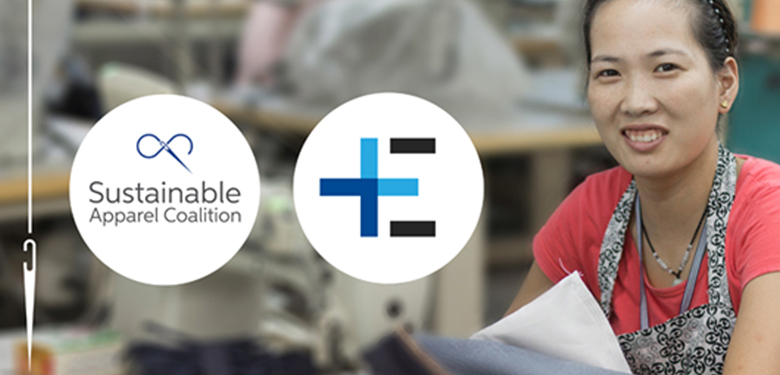Starting Your Sustainable Business Practices in the Apparel and Textile Industry
Why apparel and textile industry matters: the negative social impacts
According to United Nations Economic Commission for Europe, the fashion industry contributes to producing 20% of global wastewater and 10% of global carbon emissions, more than the emissions of all international flights and maritime shipping combined. Themed “Beat Plastic Pollution”, it was revealed that synthetic microfiber pollution is washing up in our oceans at alarming rates, causing around 100,000 marine animals are killed each year by plastic waste, including microfibers. In terms of material, cotton farming is responsible for 24% and 11% of insecticides and pesticides respectively. In addition, the textiles industry has been recently identified as one of the key contributors to global maritime plastic pollution. In addition to the negative environmental impacts, fashion is often associated with poor working conditions with long hours and low pay, modern slavery and child labour. From consumer end, Globally, consumers are throwing away US $460 billion worth of clothing each year, with one garbage truck of textiles is wasted every second. It is estimated that 92 million tons of textile waste annually from the global fashion industry, projected to increase by about 60 percent between 2015 and 2030, according to the 2017 Pulse of the Fashion.
Sustainable business practices: where to start
Industry Guides
To begin with, organisations can take small steps at every stage of the product lifecycle to incorporate more sustainable business practices. The Sustainable Apparel Coalition (SAC) encourages joint-efforts of apparel, footwear and textile companies to come up with actions of how organisations can create more sustainable efforts across the supply chain. Higg Index and Fashion For Good offer resources, tools and assistance for organisations to use as tools to make fashion more sustainable. For companies that are unsure about where to begin with their sustainable efforts.
Promoting sustainable production and consumption
- A&E procedures sustainable products in which the threads of its products are manufactured with recycled drinking bottles; 48% of the fuel it uses for dying comes from renewable, carbon neutral fuel. Since 2013, the company has recycled and reused 1.5 billion liters of wastewater, which if not treated properly, would negatively impact the environment.
- The North Face uses recycled materials, ThermoBall Eco, which is made of at least five plastic bottles that otherwise would have ended up in a landfill.
- Adidas committed be 99% free of poly-and perfluorinated substances and sourcing 100% sustainable cotton in 2017 and 2018 respectively.
Rethinking the Business Model
According to 2019 State of Business Report, reuse is making a comeback in form of “recommerce,” an emerging concept in the culture of reuse, where consumers can trade in used goods to consumer brands, which then refurbish and resell them.
- Yerdle Recommerce provides service for retailers which enables customers to return worn goods for store credit. Upon collection, Yerdle repairs the goods so that the apparel companies can sell them again as refurbished goods at their own brands with proper warranties, customer service and return policies.
- The RealReal and thredUP, sells high-end brands of second-hand women’s apparel. Rent the Runway in the US, YEECHOO and Prêt-à-Dress in Hong Kong are some of the examples offering rental service for clothing.
Join the industry event: Sustainable Apparel, Footwear & Textile Industry Forums in China
China’s apparel manufacturing sector enjoys new opportunities for growth while facing disruptive forces in the market. To strengthen manufacturers’ program effectiveness in China, the SAC and ELEVATE have introduced the Sustainable Apparel, Footwear & Textile Industry Forum, which will take place on the 9 April 2019 at the JW Marriott Hotel Shenzhen and 11 April 2019 at the Swissôtel Grand Shanghai.
Dedicated to supporting industry to measure environmental and social labor impact across the supply chain, SAC and ELEVATE will share the latest update on the Higg Index and SAC sustainability tools. Industry professionals will explore trends in sustainability performance assessment methodology and CSR reporting requirements in the apparel, footwear and textile industry. At the forums, representatives of factories, vendors, agents and licensees in China will:
- Understand the regional context, trends and challenges in the China market through our unique dataset
- Get the latest update on the Higg Index and the SAC’s strategic priorities
- Learn how to leverage the Higg Index as a strategic tool to drive performance improvement
- Share the trend of assessment methodology & application of quality data in sustainability performance review
- Explore international norms and requirements of CSR reporting
- Share industry best practices at the facility level
Don’t miss the chance to join the industry experts and create positive environmental and social labor impact across supply chains in the textile apparel, footwear and textile industry. Click here or contact ELEVATE for more information.
